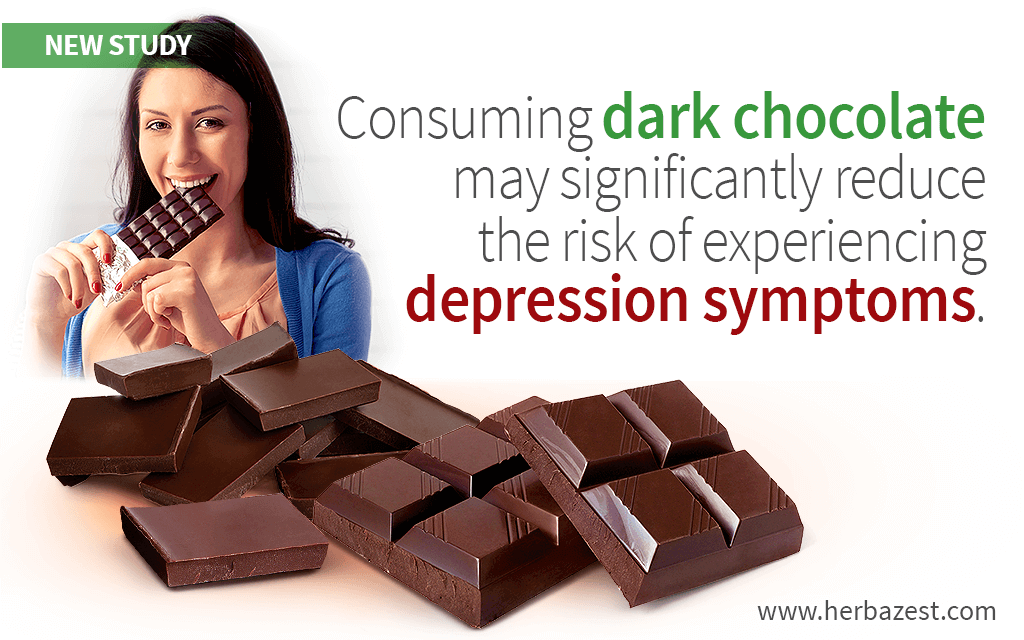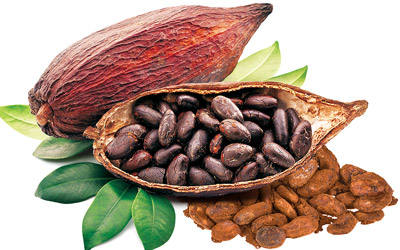Dark chocolate, which is considered as such when it is made of at least 70% pure cacao beans, is becoming increasingly popular as a healthy snack. Dark chocolate's benefits include preventing cognitive decline, improving energy, and supporting cardiovascular function, thanks to its high concentration of antioxidant and stimulant compounds.
Depression, on the other hand, is a serious mood disorder characterized by prolonged feelings of sadness, irritability, and apathy, affecting about 280 million people of all ages worldwide.1 Depression is considered the leading cause of disability and suicide globally, and women are more likely than men to experience this major mood disorder. Moreover, people with depression are at greater risk of developing heart disease.2
Because people often instinctively reach for chocolate to fade away occasional downs, the link between chocolate and depression has been widely tested before with varying results. Interestingly, this is the first survey taking into consideration the type of chocolate consumed.
The Study
A scientific team at University College London (United Kingdom) conducted a cross-reference analysis of data obtained from the 2007 and 2013 National Health and Nutrition Examination Survey (NHANES), which uses interviews and physical examinations in order to assess the health and nutritional status of adults and children in the United States.
The data of NHANES was obtained from a sample of 13,626 healthy adults, both male and female in their forties. Information of the average chocolate consumption came as part of two 24‐hour dietary recalls, including a detailed evaluation of classic depressive symptoms. The scientific team cross-referenced most common depressive symptoms with type of consumption, from no chocolate at all to the different chocolate choices available, including milk and dark chocolate, as well as with the amount ingested, expressed as grams per day.
The Results
After the cross‐sectional survey analysis, interesting data was obtained: 11.1% of the sample reportedly ate chocolate, 12.1% of which consumed specifically dark chocolate. There was no significant incidence of major depressive symptoms among those who consumed non‐dark chocolate; however, people that preferred dark chocolate showed an important reduction in their risk of experiencing depressive symptoms. It was also observed that those who consumed between 104 and 454 grams of dark chocolate per day registered a 57% lower risk of experiencing depressive symptoms compared to the group that did not eat chocolate.
What Does this Mean?
Although these findings are good news for chocolate lovers around the world, particularly those suffering from depression, more research is required to corroborate them and further investigate the link between chocolate and depression. Nevertheless, this survey has revealed that pure cacao chocolate is able to influence mood, positioning it as a potential coadjutant in the treatment and prevention of mood disorders.
Pure, organic cacao can also be transformed into a variety of healthy recipes. For an extra boost try a Morning Starter Cacao Maca Shake, some Raw Maca & Cacao Nibs Brownies as an energizing midday snack, or a Maca Chocolate Cream as a delicious, guilt-free dessert.
Sources
- Depression & Anxiety, Is there a relationship between chocolate consumption and symptoms of depression? A cross‐sectional survey of 13,626 US adults, 2019
Footnotes:
- World Health Organization. (2023). Depressive disorder (depression). Retrieved April 26, 2023, from: https://www.who.int/news-room/fact-sheets/detail/depression
- National Institutes of Health. (2017). Heart disease and depression: A two-way relationship. Retrieved April 26, 2023, from: https://www.nhlbi.nih.gov/news/2017/heart-disease-and-depression-two-way-relationship





